|
I had lived in Baltimore for only a few months when some friends came to town. They insisted we see the Inner Harbor, and so off we went, adventuring on foot. I’ll be very honest: having grown up in the suburbs of Philadelphia, I was still getting used to the number of individuals on the streets asking for money. My instincts always screamed: KEEP WALKING; DON’T MAKE EYE CONTACT; YOU HAVE NO MONEY TO GIVE. And usually by the time my inner voices settled down, I was a block or two past the questioner. But when my friends and I decided on crepes for lunch, I found myself unable to keep walking past the homeless man who was hunkered down directly in front of the door to our intended restaurant. In my mind, of course, it became a game of lowered eyes, mumbled replies and a quick grab for the doorknob. Not so, for my friends. While I was shuffling past the man and his quiet request for help, my two friends stopped, asked his name, and shook his hand. “I’ll tell you what, buddy,” my one friend replied. “I don’t carry any cash. But why don’t I buy you a crepe?” The gentleman thought that would be just fine, and so in we all went to place our orders. I don’t remember that man’s name, what we discussed, or what kind of crepe he got. But I do know that my comfortable, ready-made response to those I encountered on the streets asking for money suddenly became embarrassingly out-of-touch and morally questionable. What’s more, I was awestruck by the knee-jerk reaction of my two friends: where I cast my eyes down, they looked another human being in the face and smiled. If you hear anything about Catholic Social Teaching, you often hear that it’s the Church’s best kept secret. Why is that? Because we sometimes don’t realize that popes, theologians, saints and everyday Catholics have been thinking, praying, and writing about issues of hunger, war, poverty, and injustice for a very long time. And, as a result, we have a pretty elaborate, intellectually rigorous and philosophically challenging framework within which to address the most pressing issues of our day. So often, those who are in on this best kept secret are often intimidated because they think they need a degree just to wrap their minds around Catholic Social Teaching. Not so. Certainly don’t miss out on the chance to study these teachings, but prayer is what helps us get at the heart of the matter. I spent a lot of time over the following weeks reflecting on that encounter between me, my friends, and that man outside the crepe shop. Why was I so struck, so inspired? Could this have been what the disciples saw in Jesus, why they were so attracted to him? Did they see an individual who met the gaze of those in need with a smile and an outstretched hand? Let us take the person of Jesus—God, who we meet in prayer and life’s daily joys and struggles—and go from there. That’s the heart of Catholic Social Teaching. We realize that every person we come across in our day—those we intend to meet, and those who stop us for money—are lived expressions of God in our world, opportunities to meet Christ. It becomes a lot harder to ignore them. What’s more, we begin to see that as we encounter Christ in others, we find ourselves drawn deeper into the plight of those most in need. We ask ourselves, “how can such injustice be allowed to exist?” And God responds, “Well, then do something.” That’s now what I find myself forced to grapple with when I encounter individuals on the street, in the news, wherever. Because if I admit that we are all part of God’s family, that my existence here and your existence there are less about what we’re doing and more about what God’s doing, my perspective has to change. I have a responsibility to act, to live my life in a more intentional way. At Catholic Relief Services, we throw the word solidarity around like it’s a Frisbee on the beach. But that doesn’t make it any less important. It is, after all, a key element of Catholic Social Teaching. And it calls us to live beyond ourselves, to recognize God in all things and all people and to work for a world that is just and peaceful for all. And sometimes, that work begins with the guy you passed on the street outside the crepe shop who’s asking for some change. Want to learn more about Catholic social teaching? Check out these resources:
0 Comments
Summertime in the United States brings about a lot of great traditions. It brings longer days, shorts, flip-flops, trips to the beach, barbecues, and processions. Processions are large public demonstrations of faith and piety that have been handed down from generation to generation. In Italian American communities, processions are filled with music, color, and, of course, great food—lots and lots of great food. We celebrate in this way because our fathers did before us, and their fathers did before them. This summer I've already been able to attend to two processions and I look forward to a few more. I attended the 107th annual Festa Dei Ceri in Jessup, Pennsylvania, and the 112th feast of St. Anthony Italian Festival in Little Italy Baltimore, Maryland. Each has a long tradition and there are as many differences as there are similarities. At the core, each is a faith that is embedded within its community that is rich and deep.
Festa Dei Ceri, or simply St. Ubaldo’s Day, is a tradition that was brought from Gubbio, Italy by immigrants to Jessup, PA in 1909. Tradition states that in the early 1100s, Ubaldo Baldassini, the Bishop of Gubbio, met with Frederick Barbarossa , the Holy Roman Emperor who was on a military campaign in Italy, and convinced him not to invade and to spare the town from destruction. When the bishop returned with the good news, he was raced through the streets on a platform to reassure the town’s safety. The residence commemorated this event by racing a statue of him, along with statues of St. George and St. Anthony, through the narrow streets of the medieval town. Immigrants brought this tradition with them when they emigrated to Jessup in large numbers in the early 1900s. The Running of the Saints occurred from 1914 to 1952, then from 1976 to 1990, and has consistently been held since 2000 after being revived by local high school students. The day begins with the high school marching band waking the town up and calling them to Mass. After Mass, the statues which are about 30 inches tall are placed in 15 foot wooden structures that are designed to carry the saints and weigh about 400 pounds each. The saint statues are then blessed with holy water, first by the parish pastor or the Bishop of Scranton, then by the team captains and carried through the town by three different teams of men. A relic of St. Ubaldo is also processed and venerated with a significantly larger statue of him throughout the town. In the late afternoon, the three statues are then raced through the town at breakneck speed and over steep terrain. St. Ubaldo always wins, followed by St. George and St. Anthony. After the statues are removed and the platforms are disassembled, they are brought back to the church. The whole weekend is an expression of faith, family, and tradition. A few weeks after that, I was able to attend the St. Anthony Festival in Little Italy in Baltimore, Maryland, which dates back to the Great Baltimore Fire of 1904. While massive fire raged in parts of the city, parishioners gathered at Saint Leo the Great Church in the Little Italy neighborhood of Baltimore. The parishioners prayed to St. Anthony for the protection of their neighborhood. Luckily, the neighborhood was spared. Many attributed this to the intercession of St. Anthony. The parishioners celebrated his feast day with a Mass, procession, and street fair which has continued ever since. Just five years after the beginning of celebration of the feast, the parish became a ministry of the Pallottine Fathers and Brothers. This year, I attended the events along with two Pallottine students in formation. The three of us served Mass and partook in the procession through the streets. Many people came out of their houses and cars to watch us. It was great fanfare with a full band, 4th Degree Knights of Columbus color guard, and a highly decorated statue of St. Anthony. Many people pinned money to strips of cloth tied around the statue as a small offering and prayer to St. Anthony. There was food, music, and an intense bocce ball tournament. Each of the celebrations has a few core elements that all processions have. Processions are about faith and community. Processions help increase our faith by publically displaying various statues and images. It is a form of evangelization in the streets. At the same time, they help build community by calling all those together for a common cause. They reinforce not only our proud heritage and traditions, but also our faith. They promote our faith being celebrated together. Processions are also about the individuals' participation. Attending a procession invites us to feel that we are a part of the community and reinforces our own faith. When I go to procession, for example, I not only enjoy the fanfare, but am also reminded that my faith is connected to those around me. I encourage you to seek out processions and bring your friends and family. Pray, eat, and enjoy each other's company. Processions can be beneficial for every group that continues the practice, not just the Italian American community. Ours just happen to have a bit more tomato sauce and wine than most! As the summer goes on, I look forward to many more processions and I invite you to go out and either attend or partake in a procession. "During those days Mary set out and traveled to the hill country in haste to a town of Judah, where she entered the house of Zechariah and greeted Elizabeth. When Elizabeth heard Mary’s greeting, the infant leaped in her womb, and Elizabeth, filled with the holy Spirit, cried out in a loud voice and said, ‘Most blessed are you among women, and blessed is the fruit of your womb. And how does this happen to me, that the mother of my Lord should come to me? For at the moment the sound of your greeting reached my ears, the infant in my womb leaped for joy. Blessed are you who believed that what was spoken to you by the Lord would be fulfilled.’" -Luke 1:39-45
Year after year, we hear this reading in the days leading up to Christmas. As we prepare for the day on which we celebrate the Son of God entering the world, we tend to hear this passage and focus on Elizabeth’s words: “How does this happen to me, that the mother of my Lord should come to me?” and “blessed are you who believed.” Rightfully so, we concentrate on Mary’s fiat and, thus, the beginnings of the life of the one who would save us all. However, we may tend to overlook another thing Elizabeth exclaimed: “the moment the sound of your greeting reached my ears, the infant in my womb leaped for joy.” John the Baptist would go on to be the great “forerunner of Christ.” As we commemorate the Feast of the Nativity of John the Baptist, we remember that it was he who prepared the way for Jesus’ ministry. John preached the coming of the Kingdom of God to the thousands that flocked to the desert to hear his preaching. It was he who baptized Christ in the Jordan, thus anointing him for his ministry. John the Baptist’s own ministry goes back to the moment when John, in his mother’s womb, hears the voice of Mary calling. That voice is not just that of a young woman, but a young woman who is the Mother of God. Thus, John, leaping in Elizabeth’s womb, seems to be recognizing and acknowledging the fact that the Lord Himself is present in Mary’s womb. Several years ago, then-Pope Benedict XVI made a comparison to John’s leap for joy: “Mary, expecting the birth of her Son Jesus, is the Holy Ark that contains the presence of God, a presence that is a source of consolation, of total joy. John, in fact, leaps in Elizabeth’s womb, just as David danced before the Ark.” Benedict reminds us of the scene in 2 Samuel 6 when David dances excitedly as the Ark of the Covenant is brought into Jerusalem. In both cases, the Word of God is physically present. Before John, the Word is Jesus in the womb of Mary. Before David, the Word is in the form of the Ten Commandments within the Ark. For them, being in the presence of the Lord was not something they took lightly. They were not afraid or saddened, they were filled with a joy so immense and so uplifting that the only way they could express themselves was by jumping and dancing. These Biblical events point to the line at the heart of Pope Francis’ exhortation: “The joy of the gospel fills the hearts and lives of all who encounter Jesus.” Faith in Jesus, who is the Word of God incarnate, is not something that should bring us down. It is not something that should feel like an overwhelming burden. When we go to a sports game or another competition, for example, we sit on the edge of our seats, waiting and hoping that our side will come out on top. When our team scores, we jump to our feet and cheer loudly. We clap and sing and even shed some tears. How much more, then, are we call to be excited when we are in the presence of God in the Eucharist or spreading the Good News to those we encounter? We are invited to witness to our faith gladly, for we believe in a God who loved us so much that He gave His only son to die for our sins so that we might be able to have eternal life with Him (cf Jn 3:16). That kind of love reminds us to live our life of faith happily. Pope Francis once commented, “I cannot imagine a Christian who does not know how to smile.” He was correct. How could a true believer exemplify the love of God with a frown? Let us follow the examples of David and John the Baptist who show us that true faith does not bring about sadness or dread, but instead brings us joy and peace. When we encounter someone who may challenge our beliefs, do not yell and scream back, but face that opposition with grace and a smile. When we go to Mass and notice that those around us may be mumbling their way through the hymns, I invite you to sing loudly and proudly, remembering that you are glorifying God. And when we get tired in our faith lives, let us be reminded of Christ’s love and sacrifice for us and, like John the Baptist, “leap for joy” ourselves. Victor David is a collaborator with the Catholic Apostolate Center and a staff member at The Catholic University of America in Washington, DC. Growing up, I thought little of my home parish as I dutifully climbed into the family car each weekend. Upon pulling into the parking lot, I would scan the cars around me to get a sense of who would be inside and who I would attempt to chat with after Mass. It was a similar situation inside the church and it often appeared that the same people occupied the same pews week after week. While waiting for Mass to begin, I would flip through the weekly bulletin to read my pastor’s notes, read the calendar of upcoming events, and note the changes in the parish pantry and collection amount. After Mass, I’d remain to chat with the celebrant and anyone I knew for a few minutes before going off into the rest of my week. I was surely aware of the opportunities available to me at the destination of my parish, but for me it was little more than just that: a destination. Now that I’m older and have been blessed to have my faith deepened, I am more mindful of how the impact of being active in the life of my local church has supported me throughout each week. It’s like going through school: day in and day out is a routine, but after finishing, you’re able to look back and see the changes that have affected the rest of your life. At this point in my life, however, I am rarely back in my home diocese. I remain connected to life there through diocesan livestreams and social media. With the embrace of such technology, how easy and effective it has become to share news and coverage of the rich variety of events within the Church! The ability to electronically minister to and participate in the life of the local church can also be employed to the service of the diocese’s well-being. Recently, I came across the launch video for my diocese’s new “Faith to Move Mountains” endowment campaign. In it, the bishop explained the current state of the local Church and the need to jumpstart a new and rather audacious level of diocesan-wide financial support in order to continue to provide the same or better quality of services to the community: “This is our Church,” he said, looking directly through the camera at me, “This is our home. We are bracing ourselves— getting ourselves ready— for the future.” It was then that I realized how much the diocese depended on each of its parishes, which then depend on the support of their respective congregations (i.e. me) for the fulfillment of its ministries in order to continuously bring about the world’s fruitful encounter with the Risen Lord. For all the good each of our local churches do for us, how can we repay in kind? Certainly by paying attention during Mass and attending the various catechetical, service, or social events advertised in the parish, but these are not givens to be taken for granted and they often incur a cost on the parish. As my bishop observed: Catholic priests are there for the whole week. They’re there after the sermon is over after the Word is preached. Not just on Sunday mornings. They’re in our schools. They are at our hospital beds all hours of the day and night. They’re listening to our sins in the confessional. They’re counseling people… You won’t believe sometimes what people bring to the priest with the expectation that it’s going to be better when they walk out the door… Preaching the Gospel doesn’t cost a dime. Everything else, however, everything that our parishes need and try to do for you, our parishioners, carries a price.[1] The life of the Church is so very dependent on the full and active participation of its members. Not only when times are good, but especially when times are tough. Rather than running to the parking lot immediately after Mass, taking the time to personally befriend the priests and staff of the parish, continuing to participate in the charitable works of the church, supporting the businesses that sponsor ads in the weekly bulletin, and inviting others to join in doing so are some effective alternatives to simply cutting a check. Supporting each other through acts of service, stewardship and participate in parish events is at the heart of Christian goodwill. As each of us depends on the Church to guide us into Heaven, so does she look upon us to help her in her most noble evangelical enterprise of preaching the Gospel and serving the poor. I invite you to make your parish more than simply a destination. Do your part to help build a thriving parish community so that, together, you may all say, “this is our home!” On Sunday, we celebrate fathers. When I was young, my three siblings and I would use this day to thank our dad by giving him a few things he loved. We would let him sleep-in, make a full breakfast (sometimes corn muffins with icing writing) with a new “#1 Dad” mug each year, give him the cards we had made, go to Church as a family, pray the Memorare prayer to St. Joseph, and then leave him to fall asleep watching the NASCAR race on the couch (and not even change the channel while he was sleeping). It was a great day to make my dad feel appreciated. Since I moved away from home, I still try to celebrate Father’s Day by sending a card or two, giving my dad a phone call, and keeping in touch. Most importantly, I have realized that my dad has taught me three important lessons about life: to always keep your head up, that family will always be there for you, and that a Catholic should live in service to the community and with faith in God. In thinking about my dad’s example, I can’t help but feel that his life also modeled that of St. Joseph, the foster father of Jesus.
I’m pretty optimistic, and I get it from my dad. He has a thing about quoting movies. Some of his favorite lines are Dory’s “Just keep swimming, Just keep swimming” from Finding Nemo and The Lion King’s “Hakuna Matata.” During challenging times in my family, silly reminders like these helped teach my siblings and me about perseverance and keeping a smile on our faces. Even now, I use these phrases as mottos and words to live by, and have been able to pass along a similar optimism to the students I teach and my own friends. My dad also taught me about love and support with family. He was the one to encourage my siblings and me to be nice to each other, reminding us, “You’re going to want to keep in touch with each other, because one day you might actually be able to stand one another.” Turns out, he was right. Three of the four of us live in Washington, D.C. and appreciate each others’ company more than ever. St. Joseph also modeled a steadfast commitment to family, even in the midst of hardship. He remained loyal to Mary in their betrothal after finding out she was with child; he guided the expectant Mary into Bethlehem and took care of her despite not finding room at an inn; and Joseph led the Holy Family into Egypt for safety as a result of the persecution implemented by King Herod. The final lesson to consider is my dad’s faith and devotion to the Gospel. When I was young, he would start the day by praying with the family through a passage in either the New Testament or the Psalms and say an “Our Father” together before leaving to teach for the day. My dad has always been big on service and helping others, too. He was the one to initiate the Kirby’s into parish hospitality and we began to run a monthly “coffee hour” where we would serve coffee and doughnuts to our fellow parishioners. Around this same time, he also became a city councilor to further help the community. Through his faith and commitment to service, my dad reminds me of St. Joseph. My dad’s continued positivity, the prioritization of our family in his life, and his life of faith and service model the life of the foster father of Jesus. The Memorare of St Joseph was prayed on Father’s Day in my house growing up: “Remember, O most pure spouse of the Virgin Mary, my beloved Patron, that never it has been heard that anyone invoked your patronage and sought our aid without being comforted. Inspired by this confidence I come to you and fervently commend myself to you. Despise not my petition, O dearest foster father of our redeemer, but accept it graciously. Amen.” St. Joseph, patron of fathers and workers, was a humble man who said “yes” to God. After finding out that his betrothed was pregnant with God’s son, St. Joseph continued to protect and care for his family, knowing that there would be hardships and danger in the future. Although not much is written about St. Joseph besides what is in the Gospels, he is remembered for his commitment to Mary and Jesus and his simply-humble nature. As we celebrate Father’s Day this Sunday, we can remember St. Joseph in prayer and thank him for his respectful obedience in service to God’s plan in our lives though faith, service, and focus on the family. As I was walking down the sidewalk to my residence hall, I glanced at my watch and realized I had a busy night ahead. I still had class until the evening, had to eat dinner, meet with a resident, prepare for next Monday’s program about how faith enriches our relationships, and study for two exams the next day. When I unlocked the door to my room, I realized I had about fifteen minutes until my next class. I thought to myself that it would be a good time to quiet myself and pray. I decided it would be easier, since I was rushed, to quickly recite a couple of prayers rather than expend the necessary effort to examine my day or truly open my heart to God, the Infinite Love. My principle concern at that moment was to check daily prayer off my to-do list. I felt rather empty for the rest of the day and struggled in my ministerial responsibilities. I lacked authentic prayer in my day and it took its toll. While authentic prayer can be hard, especially for those of us involved in ministry, authentic prayer empowers us to fulfill the mission Christ entrusted to us. Yet, what exactly is authentic prayer?
During a homily in the chapel of the Santa Marta residence in 2013, Pope Francis stressed that “the Lord tells us: 'the first task in life is this: prayer.' But not the prayer of words, like a parrot; but the prayer, the heart: gazing on the Lord, hearing the Lord, asking the Lord.” Pope Francis astutely observed that authentic prayer is integrally connected to the heart, the Sacred Heart of Christ, and our own hearts. When we engage in authentic prayer, we are opening our hearts to the transforming infinite love and mercy of Jesus Christ. We are being honest with God about the desires of our own heart. While authentic prayer is certainly beneficial for our own selves, being practitioners of authentic prayer also is a gift to the entire Church. Others notice God using us sinful creatures as His instruments. Our lives become signs that point towards the Kingdom of God. Yet, we must each reflect on how tempting it is to imitate a parrot in our prayer. How often do we recite prayers to cross them off of our to-do list, having little faith that the Lord will answer them? Asking God to open our own hearts to His infinite love combats this temptation. If I had taken the time to really open my heart to God, to be honest in my prayer and not dress it up, I would not have struggled with my ministerial responsibilities. When we become men and women of authentic prayer, Christ transforms our hearts after His own heart. Thus, we are empowered by the Holy Spirit to be humble heralds of the infinite love and mercy of Jesus Christ. For more resources on prayer, click here. "In light of Father’s Day, I have been reflecting on how the Father cares for his children, and how we can understand God’s fatherhood."
“… You, oh Lord, are our Father…” (Is 63:16) During an especially difficult time of transition in my life, I became very bratty with God. As in, I whined to God the Father, and was very spiritually dramatic. “Abba! Daddy!,” I screamed, “What are You doing with my life? What is going on?” The short answer: taking care of me. The long answer: taking care of me in ways I haven’t even begun to realize. In light of Father’s Day, I have been reflecting on how the Father cares for his children, and how we can understand God’s fatherhood. We live in an age characterized by fatherlessness. Personally, I don’t have the best relationship with my earthly father, and neither do many of my peers. This can sometimes damage our view of God the Father. Does the Father really love me? Does He like me? These and other questions can plague our spiritual lives as we seek to understand our roles and vocations in life. Someone somewhere along the way told me the Father loves me, and I believed them. But I have also wondered what that means. What does it mean to be taken care of by a good father? What does a good father look like? What role does spiritual fatherhood play in this age? To get some answers, I grabbed a few books. I also bribed my pastor with brunch one Saturday and asked him. The Catechism of the Catholic Church, in paragraph 2223, states that parents are responsible for “creating a home where tenderness, forgiveness, respect, fidelity, and disinterested service are the rule. The home is well suited for education in the virtues. This requires an apprenticeship in self-denial, sound judgment, and self-mastery - the preconditions of all true freedom.” The Catechism says parents, not just the mother or the father, but both create the home. How often in sit-coms, movies, or advertising do we see dads being labeled as irresponsible buffoons who can’t take care of their children or run a household without impending disaster? How often do we hear, jokingly of course, that a woman’s husband is her biggest kid, implying that she has to take care of him as if he can’t care for himself and others? In my conversation with my pastor, Fr. Michael, he pointed out the similarities and differences of biological and spiritual fatherhood. A spiritual father can never replace and cannot be as close as a biological father because the community a priest serves is diverse and varied. Human fatherhood, both biological and spiritual, is for the sake of directing children to depend upon God the Father. In other words, they are to train their children to not need them anymore. Fatherhood is meant to be a pilgrimage of surrender, directing the lives of their children to see that God has been working in their lives and caring for them all along. While a father will always be there for his children, praying for and supporting them, his mission is to train them to see God the Father for who he is and to be receptive to the Father’s love and his will for their lives. Fr. Michael said fatherhood should be approached with awe and gratitude and humility because God the Father is allowing a fallen human man to participate in his mission of loving his people, and this man might get it wrong. People fail. It happens. Even the best of fathers and priests and popes make mistakes. There was a reason Pope St. John Paul II went to confession every week. (What was he confessing? We don’t know. But clearly it helped him love us better.) The parable of the prodigal son could also be called the parable of the patient father. He longs for our hearts to be united to his heart, whether we are the faithful older son or the rebellious younger son. There is a place for each of us in our father’s house. No matter how petulant, rude, or down-right bratty we are with him, our Father loves us and cares for us. He will not fail us, even if we have no idea what his will is during a moment of turbulence. In the first part of this series, we discussed some of the initial steps that our parish took in beginning the building and creating process for the new Wellness Coordinator position and ministry we felt our community needed.I would like to take a moment to share with you some of my beginning experiences in creating and building a ministry to meet a need that our Pastor, Father Forrey, recognized in our community.It is my hope that you can use some of my experiences to either assess, re-invent, or create whatever ministry field it is that you are being called to. The mission of our Wellness Ministry is to provide the tools and support necessary to foster a healthy community through five aspects of wellness: physical, mental, emotional, social, and spiritual.Our goal is to be able to create a positive, spiritually uplifting environment where our exercise and our health become a form of praise and thanksgiving.We have determined our need and our mission. What next? Do the research. When beginning a new ministry, I would advise you to be sure to conduct ongoing research regarding the work of your ministry. In my experience, it is of utmost importance to be sure your work is relevant to your specific community as well as current societal trends for that particular need. At least once every two months, I make sure to schedule time in my week to focus on research to help strengthen and enhance our programs and mission. What are the current trends in whole person wellness and how are they or how should they be affected by our Catholic beliefs and teaching? Are the programs that we are implementing and offering speaking to these societal trends and needs? Part of my role is ensuring that our ministry is providing current and relevant healthy lifestyle options for our parish while staying true to our Catholic faith. If there is an option that may provide health benefits but is not quite in line with our beliefs, how can we make some changes to still provide the same benefit while staying true to our calling? Through faithful research, you can expand your arsenal of ideas and experiences by seeing what others have already tried and their level of success. Does the source speculate reasons or give further thought on the subject? One very important link that can be uncovered through research is finding others that are working towards similar goals and may even be experiencing similar road blocks or frustrations. Seek a professional network. Two minds are always better than one. When I first began this journey, I knew that I would not be able to create a prosperous sustainable outreach on my own. By seeking the guidance and suggestions of fellow staff members, parishioners, and professionals throughout various organizations, universities, and community circles, I am better equipped to carry out the mission of my position. Pay attention to who the Holy Spirit places in your path and don’t be afraid to ask various people for guidance, suggestions, or brainstorming sessions. Some connections may fall through, but some may take your mission and your ideas to new heights. Do and Create. In the end, all of the planning, discussing, brainstorming, and praying mean nothing if you do not put anything into action. In my experience, the hardest part thus far in getting this ministry off the ground has been having the courage to step back and let it take flight. It’s wonderful to formulate thousands of ideas, but it is terrifying to actually put them into action. Some ideas will take off right away, some will falter and fall short, and still others will take time to grow and nurture. The important thing to remember is just to start! Begin to try things and keep track of the outcomes of your program. Get out there and create! This is our charge. This is our mission. “Get up now and stand on your feet. I have appeared to you to designate you as my servant and as a witness to what you have seen of me and what you will see of me” (Acts 26:16). When you are feeling overwhelmed and discouraged or are struggling for new ideas, check your compass. Make sure it is always freely pointing north to our Redeemer. You will find your way, your purpose, and your mission through Him. For more resources on collaboration in ministry, click here. "Rather than seeing summer as the “down time” at a church, commit to approach the coming months with the intention of fostering experiences of active service, quiet prayer and contemplation, and stimulating intellectual work or professional training." Having worked at a handful of churches, I have observed that the summer is the slowest time of year for parish life. Parishioner’s schedules are all over the place, especially if there are children or teenagers involved, with vacations, camps, etc. During the summer, parish programs tend to slow down (However, some parishes will run a Vacation Bible School, or similar camp-like program). But summer doesn’t have to be a long spiritual nap. In fact, the summer can be a very important time and opportunity for a church, especially for church staff. How you approach the summer can greatly shape the year ahead. Besides the celebration of the Mass, the summer provides a number of unique opportunities for spiritual growth in areas that aren’t always possible throughout the rest of the year. Here are a few opportunities for spiritual growth you might consider for your parish. Parish Mission Trips Many parishes host mission trips—whether local, national, or international. Consider prioritizing mission trips and extending the opportunities to different ages and areas. Some of my best summer memories are the trips I went on to rural Appalachia in high school. These trips instilled in me a call and love for ongoing service in my faith. Plan opportunities not only for parish staff, but also for families to serve together. Make it memorable and accessible. Let missions be an opportunity to get beyond the model of Christian ministry as something that only happens at your church. And remember to report back on the trip through photos, stories, or results to your parish. People love hearing about the activity in their parish community. It creates a sense of energy and momentum that can get carried into fall activities, especially in a youth ministry context. A service trip provides something concrete participants can point to and share with friends, family, or parishioners. I’ve also found that the more “on the fence” parishioners that are hesitant to get involved often take that first step after seeing the fruit of service. Most importantly, participants inevitably leave with a transformed, deeper experience of their faith and a lived experience of Jesus in his ministry to the broken places in need of healing. To find some long-term and short-term mission and service opportunities, click here. Retreats Work at the church never stops, but it does slow down. When is the last time your staff or ministry team spent time away, even just for a day or afternoon, from the office environment together and prayed? There are gorgeous retreat centers and shrines in every state that too often only get visited in the dead of winter. The Christian writer and philosopher Dallas Willard once said, “The greatest threat to devotion to Christ is service for Christ.” He was talking about our tendency to view prayer and contemplation as less fruitful compared to active ministry. Prayer is essential not only to any parish ministry, but to the Christian life overall. Invite your team to pray regularly or be renewed by attending a retreat. Priests are also required by Canon Law to take a retreat. Make sure your parish priest is getting the time off he needs to pray and reflect. If you or your staff is on retreat, pray for your parish priest throughout that time. Staff Development With all the conferences, classes, symposiums, etc., that happen on college campuses or churches throughout the country, summer is a great time to invest in the development of staff and volunteers. Look for opportunities to enhance your team’s intellectual and professional skills. Be flexible and open to new ideas where you and your staff can connect with other professionals or get inspired. If your parish has room in the budget, propose a conference you are passionate about or that will help your work. If you’re a liturgy or music director, take your ministers or musicians out to see a concert of sacred music or take a tour of a cathedral or museum. Rather than seeing summer as the “down time” at a church, commit to approach the coming months with the intention of fostering experiences of active service, quiet prayer and contemplation, and stimulating intellectual work or professional training. You might notice that rather than mustering the energy to get “back in gear” as summer draws to an end, you will feel renewed, enriched, and equipped for the “busy time” ahead. Moreover, you may draw closer to other others working at the parish and be more integrated as a staff, youth group, or ministry team. This can be a leaven to your ministry and parish for the rest of the year. Finally, make sure you have some fun while you’re at it; it is summer after all. |
Details
Archives
July 2024
Categories
All
|
About |
Media |
© COPYRIGHT 2024 | ALL RIGHTS RESERVED

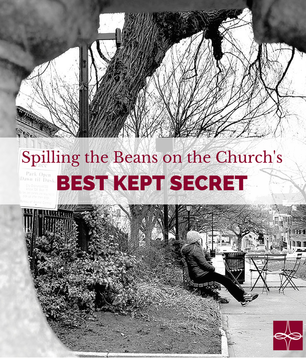

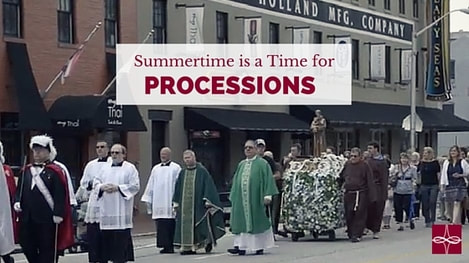
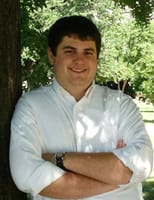
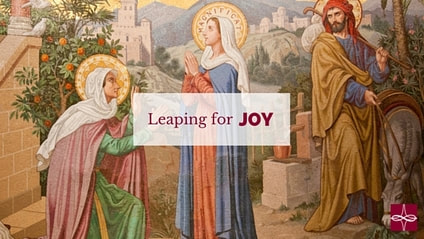
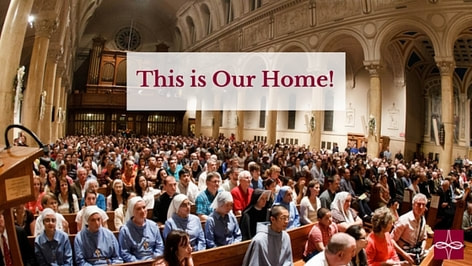

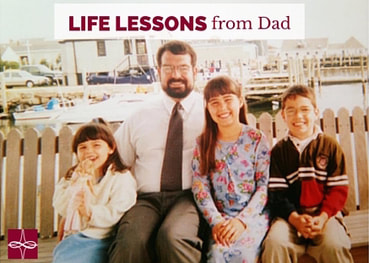

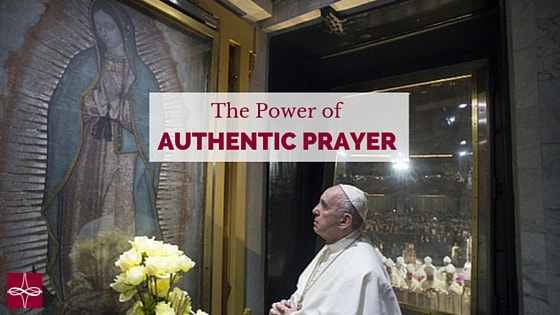

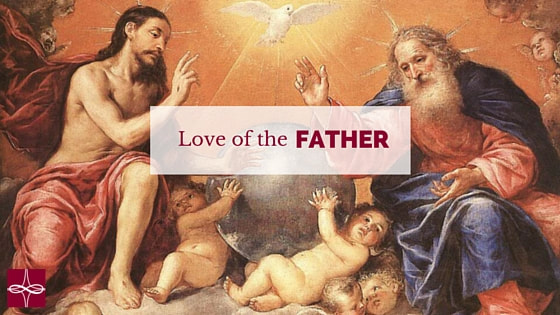

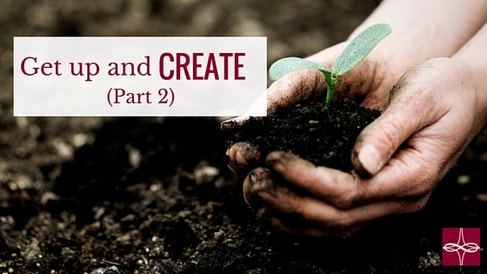



 RSS Feed
RSS Feed